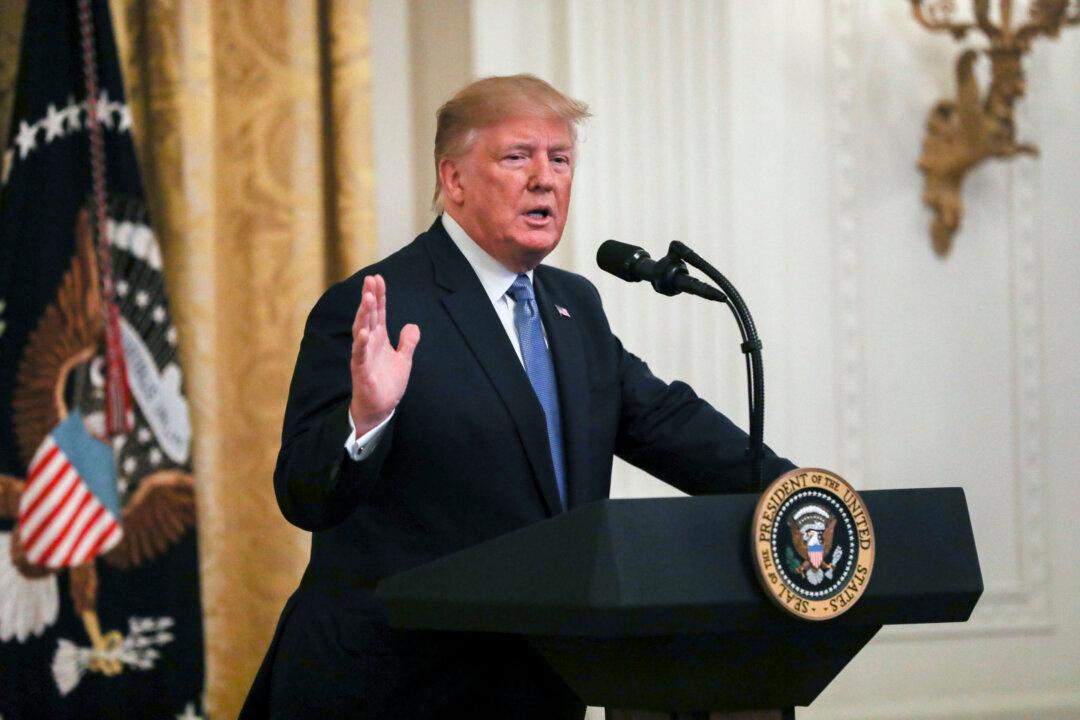President Donald Trump on July 8 celebrated the environmental progress made under his administration, days before the release of an annual air quality report that will show the air in the United States has become 1 percent cleaner since 2018 and 74 percent cleaner since the early 1970s.
The president said that the water and air in the United States are cleaner than in any other nation in the world. Environmental officials pointed to progress made on reducing carbon dioxide and methane emissions, cleaning up hazardous waste sites, and removing plastic debris from the world’s oceans.





